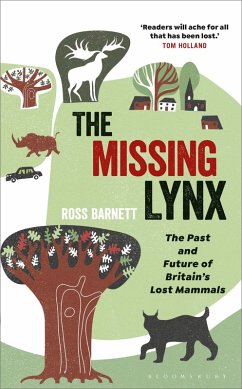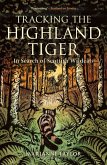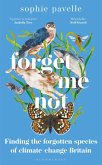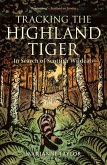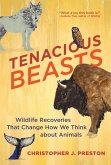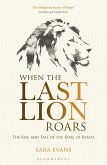Britain's lynx are missing, and they have been for more than a thousand years. Why have they gone? And might they come back?
Britain was a very different place 15,000 years ago - home to lions, lynx, bears, wolves, bison and many more megafauna. But as its climate changed and human populations expanded, most of early Britain's largest mammals disappeared. Will advances in science and technology mean that we can one day bring these mammals back? And should we?
In The Missing Lynx, palaeontologist Ross Barnett uses case studies, new fossil discoveries and biomolecular evidence to paint a picture of these lost species and to explore the ecological significance of their disappearance. He discusses how the Britons these animals shared their lives with might have viewed them and investigates why some species survived while others vanished.
Barnett also looks in detail at the realistic potential of reintroductions, rewilding and even of resurrection in Britain and overseas, from the successful return of beavers in Argyll to the revolutionary Pleistocene Park in Siberia, which has already seen progress in the revival of 'mammoth steppe' grassland.
As widespread habitat destruction, climate change and an ever-growing human population lead us inexorably towards the sixth extinction, this timely book explores the spaces that extinction has left unfilled. And by helping us to understand why some of our most charismatic animals are gone, Ross Barnett encourages us to look to a brighter future, one that might see these missing beasts returned to the land on which they once lived and died.
Britain was a very different place 15,000 years ago - home to lions, lynx, bears, wolves, bison and many more megafauna. But as its climate changed and human populations expanded, most of early Britain's largest mammals disappeared. Will advances in science and technology mean that we can one day bring these mammals back? And should we?
In The Missing Lynx, palaeontologist Ross Barnett uses case studies, new fossil discoveries and biomolecular evidence to paint a picture of these lost species and to explore the ecological significance of their disappearance. He discusses how the Britons these animals shared their lives with might have viewed them and investigates why some species survived while others vanished.
Barnett also looks in detail at the realistic potential of reintroductions, rewilding and even of resurrection in Britain and overseas, from the successful return of beavers in Argyll to the revolutionary Pleistocene Park in Siberia, which has already seen progress in the revival of 'mammoth steppe' grassland.
As widespread habitat destruction, climate change and an ever-growing human population lead us inexorably towards the sixth extinction, this timely book explores the spaces that extinction has left unfilled. And by helping us to understand why some of our most charismatic animals are gone, Ross Barnett encourages us to look to a brighter future, one that might see these missing beasts returned to the land on which they once lived and died.

